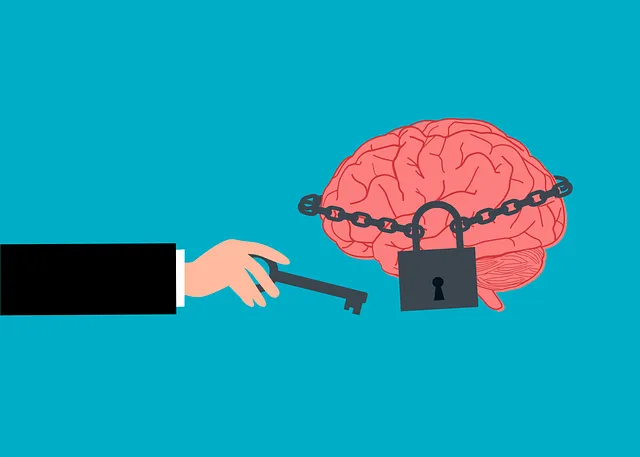Highlands Ranch Kaiser Permanente psychiatry prioritizes comprehensive risk management through tailored harm minimization planning. By meticulously assessing individual patient risks, leveraging evidence-based tools and strategies like Mental Wellness Journaling and Empathy Building, they empower patients to manage their mental health proactively. Their structured risk assessment process combines quantitative data from questionnaires with qualitative insights from clinical observations, fostering positive outcomes. Personalized harm minimization plans address unique triggers and coping mechanisms, integrating resilience-building techniques for holistic mental well-being. Continuous monitoring and open communication ensure emerging risks are promptly addressed, enhancing trust and care plan effectiveness in this leading psychiatric facility.
In today’s complex healthcare landscape, effective risk assessment and harm minimization planning are paramount, especially within mental health services. This article explores these critical aspects, offering a comprehensive guide for professionals. We delve into understanding risk assessment as a foundational step for harm minimization, highlighting the key role played by Highlands Ranch Kaiser Permanente Psychiatry in holistic risk management. Through practical tools and strategies, we navigate identifying and evaluating risks, culminating in personalized harm minimization plans. Continuous improvement is emphasized through implementation, monitoring, and revisions.
- Understanding Risk Assessment: A Foundation for Harm Minimization
- The Role of Highlands Ranch Kaiser Permanente Psychiatry in Comprehensive Risk Management
- Identifying and Evaluating Risks: Tools and Techniques for Mental Health Professionals
- Developing a Personalized Harm Minimization Plan: Steps and Strategies
- Implementation, Monitoring, and Revisions: Ensuring Continuous Safety and Support
Understanding Risk Assessment: A Foundation for Harm Minimization

Risk assessment is a crucial step in developing effective harm minimization plans, particularly within healthcare settings like Highlands Ranch Kaiser Permanente psychiatry. It involves meticulously evaluating potential hazards and their likelihood to cause harm, allowing professionals to implement targeted strategies for mitigation. By understanding the unique risks faced by patients and staff, mental health care providers can create tailored environments that foster mental wellness and enhance overall patient outcomes.
This foundational process goes beyond identifying mere dangers; it requires a comprehensive analysis of factors contributing to risks, including individual patient histories, environmental influences, and behavioral patterns. Incorporating insights from Mental Wellness Journaling Exercise Guidance and Self-Awareness Exercises can empower individuals to actively participate in their care. Through heightened self-awareness, patients gain valuable tools to navigate challenges, thereby reducing potential harm and promoting positive mental health awareness within the community.
The Role of Highlands Ranch Kaiser Permanente Psychiatry in Comprehensive Risk Management

Highlands Ranch Kaiser Permanente Psychiatry plays a pivotal role in comprehensive risk management by offering specialized services that address mental health concerns. Their team of expert psychiatrists leverages advanced assessment tools and evidence-based practices to identify and mitigate risks effectively. Through tailored interventions, such as Mental Wellness Journaling Exercise Guidance and Empathy Building Strategies, they empower individuals to take proactive measures towards enhancing their psychological resilience.
Moreover, Highlands Ranch Kaiser Permanente Psychiatry actively contributes to the broader mental wellness community through the production of a Mental Wellness Podcast Series. This initiative not only educates listeners on various aspects of mental health but also promotes open dialogue, raising awareness and fostering understanding. By integrating these innovative approaches, the psychiatric department ensures a holistic approach to risk assessment and harm minimization planning.
Identifying and Evaluating Risks: Tools and Techniques for Mental Health Professionals

Identifying and evaluating risks is a crucial step in risk assessment and harm minimization planning for mental health professionals at Highlands Ranch Kaiser Permanente psychiatry. This process involves meticulously scrutinizing various factors that could potentially pose a threat to patient well-being. One effective tool is the use of structured risk assessment tools, which help in systematically analyzing behaviors, thoughts, and emotions that may indicate elevated risk. These tools often include standardized questionnaires and interviews designed to capture subtle changes or emerging crises.
Additionally, mental health professionals can employ qualitative techniques like clinical observation and case management notes to gain deeper insights into patients’ social skills training needs. By integrating these various data sources, professionals can accurately evaluate risks and develop tailored interventions. This proactive approach, coupled with comprehensive risk management planning, ensures that patients receive the best possible care while fostering positive thinking and enhancing their overall mental health outcomes.
Developing a Personalized Harm Minimization Plan: Steps and Strategies

Developing a Personalized Harm Minimization Plan is a proactive step towards maintaining mental well-being, especially for individuals in Highlands Ranch seeking support from Kaiser Permanente psychiatry services. This process involves identifying potential triggers and implementing strategies tailored to one’s unique circumstances.
The first step is recognizing personal risk factors and past coping mechanisms. It could include understanding emotional or environmental cues that lead to distress and evaluating existing coping skills. For instance, practicing Mindfulness Meditation can help individuals become more aware of their thoughts and emotions, fostering better Mood Management. Resilience Building techniques are also crucial, encouraging a positive mindset and healthy habits. Once identified, these factors guide the creation of a personalized plan, ensuring a comprehensive approach to harm minimization.
Implementation, Monitoring, and Revisions: Ensuring Continuous Safety and Support

Effective risk assessment and harm minimization planning don’t stop at initial implementation at Highlands Ranch Kaiser Permanente psychiatry services. Continuous monitoring is key to ensuring patient safety and mental wellness. Regular reviews allow for the identification of emerging risks and adjustments to strategies, fostering an environment that supports anxiety relief and promotes positive mental health outcomes.
Proactive communication strategies play a vital role in this process. Open dialogue between patients, healthcare providers, and support staff facilitates early detection of potential issues. By embracing transparency and fostering trust, the team at Highlands Ranch Kaiser Permanente can navigate complex cases, adapt to individual patient needs, and implement timely revisions to care plans, ultimately enhancing the overall effectiveness of their approach to psychiatric care.
Highlands Ranch Kaiser Permanente psychiatry emphasizes the importance of risk assessment as a foundational step in harm minimization planning. By understanding risks, mental health professionals can proactively develop personalized strategies that effectively mitigate potential dangers. The comprehensive approach outlined in this article, including identifying risks, creating tailored plans, and continuous monitoring, ensures patients receive ongoing support and safety net services. Through these integrated practices, healthcare providers can empower individuals to lead healthier, safer lives while fostering a culture of proactive care within the mental health community.






